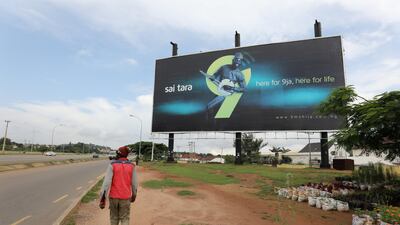The emerging markets have been in an uncertain period for some time and Africa and the Middle East are no exception to the rising challenges.
When the oil market crashed three years ago, the GCC, being broadly commodity performance-linked, was unsurprisingly affected. IMF estimates show Saudi Arabia’s GDP growth decreased significantly from 4.1 per cent in 2015 to 1.4 per cent in 2016, and to an expected 0.4 per cent in 2017.
In Oman, another oil-dependent economy, GDP growth was similarly affected, with a slowdown from 4.2 per cent growth in 2015 to an estimated 0.4 per cent in 2017. Both economies have tapped into the debt markets to sustain spending and simultaneously launched new government programmes.
Some African economies linked to commodity prices were also significantly hit; perhaps none more than Nigeria. With a GDP growing at an impressive 6.3 per cent as recently as 2014, Nigeria experienced its first recession in over 25 years when in 2016 its GDP shrunk by 1.5 per cent.
_____________
Read more:
Exclusive: S&P Dow Jones to launch three new Middle East indices
Growth of indices reflects greater sophistication of MENA investors
Exclusive: Saudi Tadawul expects market capitalisation to top $1 trillion by 2022
_____________
The challenges of dealing with a novel economic situation were further complicated by an eroding confidence in Nigeria’s naira currency. As a result of the lack of foreign currency within the economy and the inability to continue support for its currency, the naira devalued by 41 per cent throughout 2016.
Although commodity exposed countries have been hit hardest, no market has been immune. Egypt and South Africa, which are less linked to commodities, have also suffered devaluations of about 60 per cent because of geopolitics or poor governance.
The GCC has been largely spared from these fluctuations as the currencies are pegged, but the peg also has drawbacks as the strengthening of the dollar has not encouraged tourist arrivals and made exports more expensive.
Real estate sales in the GCC region have also stagnated in part because of the strong dollar and monetary policy in the Arabian Gulf, which is having a tough time keeping up with the Fed. Although it is highly unlikely these countries will de-peg; this now comes up in conversation, whereas a few years ago it was considered an impossibility.
As challenging as the past few years have been for dollar-based investors in the emerging markets, there is now real opportunity. While the short to medium outlook has changed for these countries because of various economic factors, the fundamental value drivers of these economies remain the same.
Does anyone doubt that there will be an emerging middle class in Saudi Arabia, Nigeria and Egypt over the decades to come? Saudi Arabia has used this challenging period to announce the Saudi Vision 2030, a long-term and needed reform programme combined with sustainable growth targets. While ambitious, it is the right move for the long-term success of the country and will increase employment, reduce the importance of oil and keep more discretionary income in the local economy.
In terms of Nigeria and Egypt, one can see the middle class growing daily and demanding better products. Visit either country with combined populations of nearly 300 million people and the voracious appetite for consumer goods is clear before you exit the airport.
Nigeria appears to be slowly emerging from its current recession as its Q2 2017 GDP grew by 0.55 per cent, according to the country's national bureau of statistics, ending five consecutive quarters of GDP shrinkage. While the government still has many steps to take, not least allowing the currency to freely float, the situation is much better than a year ago.
A combination of recovering oil prices and a well-thought-out foreign currency public debt issuance strategy has assisted Nigeria in building its FX reserves to US$32.1 billion in September this year, with dollar reserves up by 30 per cent from a year earlier. The parallel market naira rate has now converged with a new government sanctioned investor window of 360 naira to the dollar from what was previously a parallel market rate of over 400, showing that, at least in terms of currency, the worst may be over.
We are excited about the investment prospects there now, albeit being cautious around the short term.
Egypt has had an even better 12 months and the government has taken painful financial measures including a major devaluation and foreign direct investment is up 76 per cent from 2014 to 2016, the stock market is up over 100 per cent since the end of 2014, while foreign reserves hit a recent record at $36bn. Both Nigeria and Egypt have also just qualified for the Fifa World Cup in Russia next summer, with Egypt qualifying for the first time since 1990 and that should give a short-term boost in overall morale.
Investing in emerging markets will always come with its risks and currency devaluation will always be one of them. If you are bullish on the long-term prospects of the consumer in Africa and Middle East, get comfortable with currency volatility and find companies that play to consumers up and down the value chain. This will allow you to ride out the storm on the cycle.
Continuous investing in good management teams supported by strong local deal teams is the best way to mitigate the macro risks these regions face; that is the strategy we are pursuing.
Taimoor Labib is the managing director and head of Africa & Middle East private equity at Standard Chartered Bank

